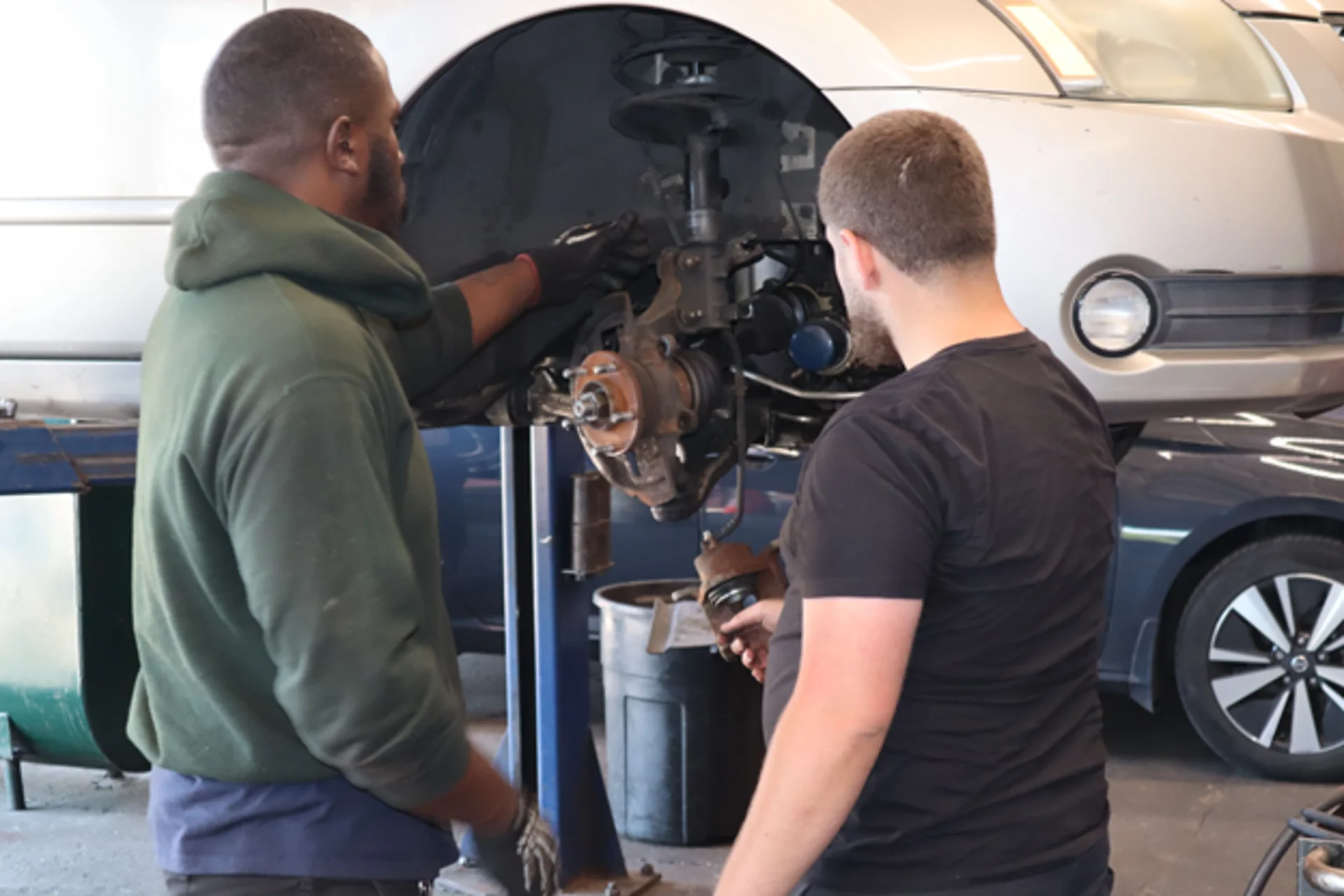The ideal thought of an automotive service technician has long included them working beneath engines and wearing clothes covered in grease. However, over the last ten years, the rapid development of car technology has led to a significant shift in this field. Modern automotive service technicians thrive in a world where automobiles are becoming more complicated and sophisticated machinery. The role of the automotive service technician has undergone a profound transformation in the last decade. Traditionally seen as “grease monkeys” focused on mechanical repairs, today’s technicians are now highly trained professionals adept in both mechanical and cutting-edge technological domains. They are no longer just mechanics but an intriguing combination of diagnosticians, tech gurus, and successful communicators.
This transformation requires a more comprehensive understanding of the evolving environment in which these critical professionals must operate. Recall the traditional mechanic who pounded with oily hands beneath an automobile’s hood. Modern automotive service technician training equips professionals with skills in software diagnostics, computer sensors, and hybrid and EV systems—areas that were minimal or non-existent a decade ago. This essential component remains, but because car technology has developed rapidly over the last decade, it serves a very different purpose. A sophisticated hybrid of tech-savvy people, mechanics, and diagnosticians makes up today’s automotive service technician. The following are some essential elements of this evolution:
The days of depending on human observation and intuition are long gone. Many sensors and sophisticated computer systems found in auto tech schools produce a vast amount of data. To examine this data, today’s skilled staff utilise advanced diagnostic technologies, including software and scan tools. Automotive technician training programs and automotive technology courses increasingly emphasise skills in electronics, software, and safety systems. This helps them locate issues quickly and effectively, which lessens the need for tedious trial-and-error fixes.
Recall the traditional auto mechanic who pounded beneath an automobile’s hood with oily hands. This crucial component remains, but because car technology has developed so rapidly in the last decade, Many shops and dealerships now require continued education and certification, making automotive service technician certification a core part of career advancement. It serves a very different purpose. Today’s technicians comprise a sophisticated hybrid of tech-savvy individuals, mechanics, and diagnosticians. This entails developing a new level of accountability and knowledge, as well as understanding the safety measures and procedures associated with these sophisticated devices.
Due to the growing complexity of automobiles, technicians must be proficient educators and communicators. Providing consumers with technical problem explanations, mechanic certification, solution recommendations, and customer service is essential to today’s work. To establish trust and clearly and concisely explain complicated ideas, technicians must cultivate good interpersonal and communication skills.
Automotive training institute technicians are essential to analysing and interpreting the massive amount of data modern cars generate. With the growth in hybrid and electric vehicles, there is an ongoing need for new training, safety awareness, and adaptability in the automotive industry. Therefore, to become an automotive service technician, they must be ready with ongoing future trends and information regarding technology. By analysing this data, they may anticipate potential issues before they become a problem, allowing them to implement preventive maintenance programs accordingly. This lowers the overall cost of repairs for the customer and enables automobiles to last longer.

Pursuing continual professional development and mechanical classes is essential to stay updated with the rapidly changing technical environment and keep up with the rapid technological breakthroughs. The cost of purchasing specialised tools and diagnostic equipment increases as repairs become more complex, placing a financial load on automotive technicians and repair companies. This requires them to buy novel machinery.
A strong need for qualified technicians: The changing terrain makes a profitable career path possible for those with the requisite skills and drive. The auto mechanic school curriculum supports a growing, future-focused workforce. The career path for automotive service technicians involves Ingenuity and addressing issues. The dynamic auto mechanic training environment encourages creativity and problem-solving, enabling Automotive technicians to utilise their knowledge and resourcefulness to tackle unexpected difficulties.
The future of automotive service technicians will see even greater specialisation and technical advancement. Professionals possessing these skills will be required to manage and maintain these intricate systems as improved driver assistance technology and driverless vehicles become more prevalent. It’s evident that during the last ten years, the position of the automotive training institute and technicians has evolved. They have evolved into tech-savvy individuals with strong communication, critical thinking, analytical skills, and skilled mechanical abilities. Aside from its potential and challenges, one of the most essential aspects of this change is its crucial role in ensuring the seamless and successful operation of our modern transportation networks.
Read More: